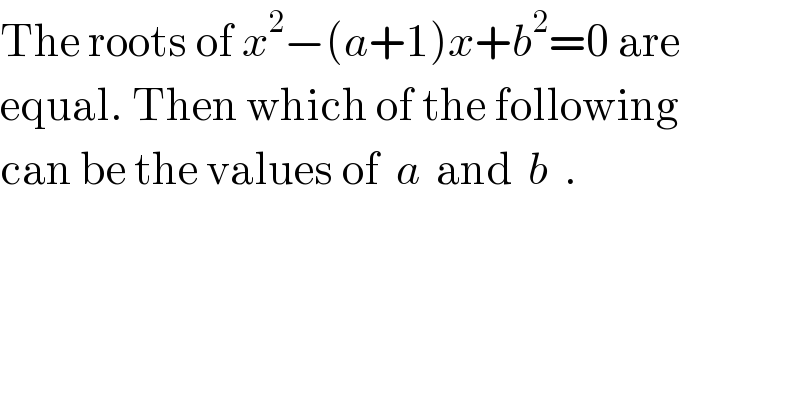Question Number 27397 by julli deswal last updated on 06/Jan/18

$$\mathrm{The}\:\mathrm{roots}\:\mathrm{of}\:{x}^{\mathrm{2}} −\left({a}+\mathrm{1}\right){x}+{b}^{\mathrm{2}} =\mathrm{0}\:\mathrm{are} \\ $$$$\mathrm{equal}.\:\mathrm{Then}\:\mathrm{which}\:\mathrm{of}\:\mathrm{the}\:\mathrm{following} \\ $$$$\mathrm{can}\:\mathrm{be}\:\mathrm{the}\:\mathrm{values}\:\mathrm{of}\:\:{a}\:\:\mathrm{and}\:\:{b}\:\:. \\ $$
Answered by jota@ last updated on 06/Jan/18

$${a}=\mathrm{1}\:\:{and}\:{b}=\mathrm{1} \\ $$
Answered by mrW1 last updated on 06/Jan/18

$$\Delta=\left({a}+\mathrm{1}\right)^{\mathrm{2}} −\mathrm{4}{b}^{\mathrm{2}} =\mathrm{0} \\ $$$$\Rightarrow{a}+\mathrm{1}=\pm\mathrm{2}{b} \\ $$$$\Rightarrow{a}=\pm\mathrm{2}{b}−\mathrm{1} \\ $$
